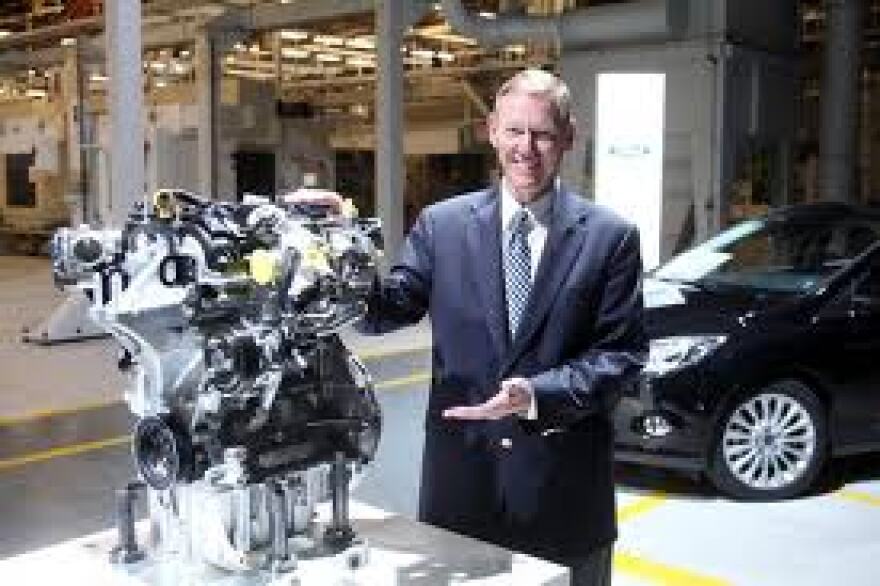Many of the claims for better fuel economy from new turbo-charged engines are more hype than reality, according to tests by Consumer Reports, the independent consumer advocacy group.
The agency tested a number of vehicles that offer regular four or eight cylinder engines, and compared them to the turbo-charged version. Turbo-charging is a technology that gets more power from a smaller engine with direct injection of extra spurts of air and fuel.
"In many cases, what we found," says the group's Director of Auto Testing, Jake Fisher, "while the EPA numbers did look better than the competitors, the actual performance in our testing was worse."
Fisher says part of the issue is the EPA's testing methods for fuel efficiency, which he says don't match up with the way many people drive a car.
"We drive the vehicles at a steady 65 miles per hour," he says of Consumer Reports' tests. "The EPA cycle is very different. There's a lot of variation, accelleration, and deceleration, and the average speed is actually 48 miles per hour."
The report could be damaging for Ford Motor Company in particular, which has placed a big bet on its turbo-charging technology, called Eco-boost. The company plans to offer the option of Eco-boost engines for 90% of its vehicles within the next two years. Customers pay about a thousand dollars extra for an Eco-boost engine on the premise that it will save them fuel.
In fact, says Fisher, sometimes the Eco-boost engines tested actually got worse fuel economy than the regular, non-turbo-charged engine. That was the case with the new Fusion with Eco-boost, which achieved a mere 25 miles per gallon in Consumer Reports tests - compared to 30 miles per gallon in the new Honda Accord, which has a regular, non-turbo 4 cylinder engine.
Meanwhile, about 40% of F-150 truck customers are buying the Eco-boost version, on the expectation it's worth the extra money because of fuel savings down the road. But Fisher says his group got the same miles per gallon out of the cheaper V-8.
"For that F-150, we tested both,' says Fisher. "That big V-8 engine, it's got an amazing burble, sounds great and works well, and there's not much reason not to get it."
A Ford spokesman responded to the report in a statement.
We cannot answer for how Consumer Reports tested the Fusion, but its findings are not consistent with our internal and external feedback. It shows EcoBoost vehicles lead in customer satisfaction for fuel economy across segments – including surveys by J.D. Power."
General Motors also responded to the report, which says the Chevy Cruze Eco, with a 1.4 liter turbo-charged engine promising better fuel economy, got the same miles per gallon as the Cruze with a regular 1.8 liter engine.
Small turbo charged engines provide the best of both worlds, higher fuel economy and available power when required. The fuel economy benefits of turbocharging come from being able to downsize the engine displacement and use the turbocharger to recover wasted energy. The Cruze turbocharged engine provides a much broader torque curve than the non-turbocharged engine and that means better acceleration across the rpm range making for a more fun to drive car. However, if you have a heavy foot on a turbocharged engine, you're not necessarily going to see fuel economy benefits. As is generally the case, the improved fuel economy you get is really dependent on how you drive.
Consumer Reports did note that a few turbo-charged engines performed well in its tests. The group said BMW's new 2.0 liter 4 cylinder engine in the 328i got 28 miles to the gallon. And the turbo engine in the 2012 X3 SUV was one mile per gallon better than the non-turbo engine.
But some of the turbo engines Consumer Reports tested delivered worse fuel economy than the regular engines, including the Hyundai Sonata Turbo, the Kia Sportage Turbo, and the Ford Escape 2.0 turbo.
Fisher notes his group has nothing against turbo-charged engines in particular - and perhaps they'll get better over time. But he also worries that the engines may prove less reliable and durable over time, due to their complexity.
Consumer Reports hasn't tested the smallest of the turbo-charged engines yet - Ford's three cylinder FOX engine, which will be offered in the Fiesta next year. The EPA hasn't released fuel economy numbers yet for the vehicle.






